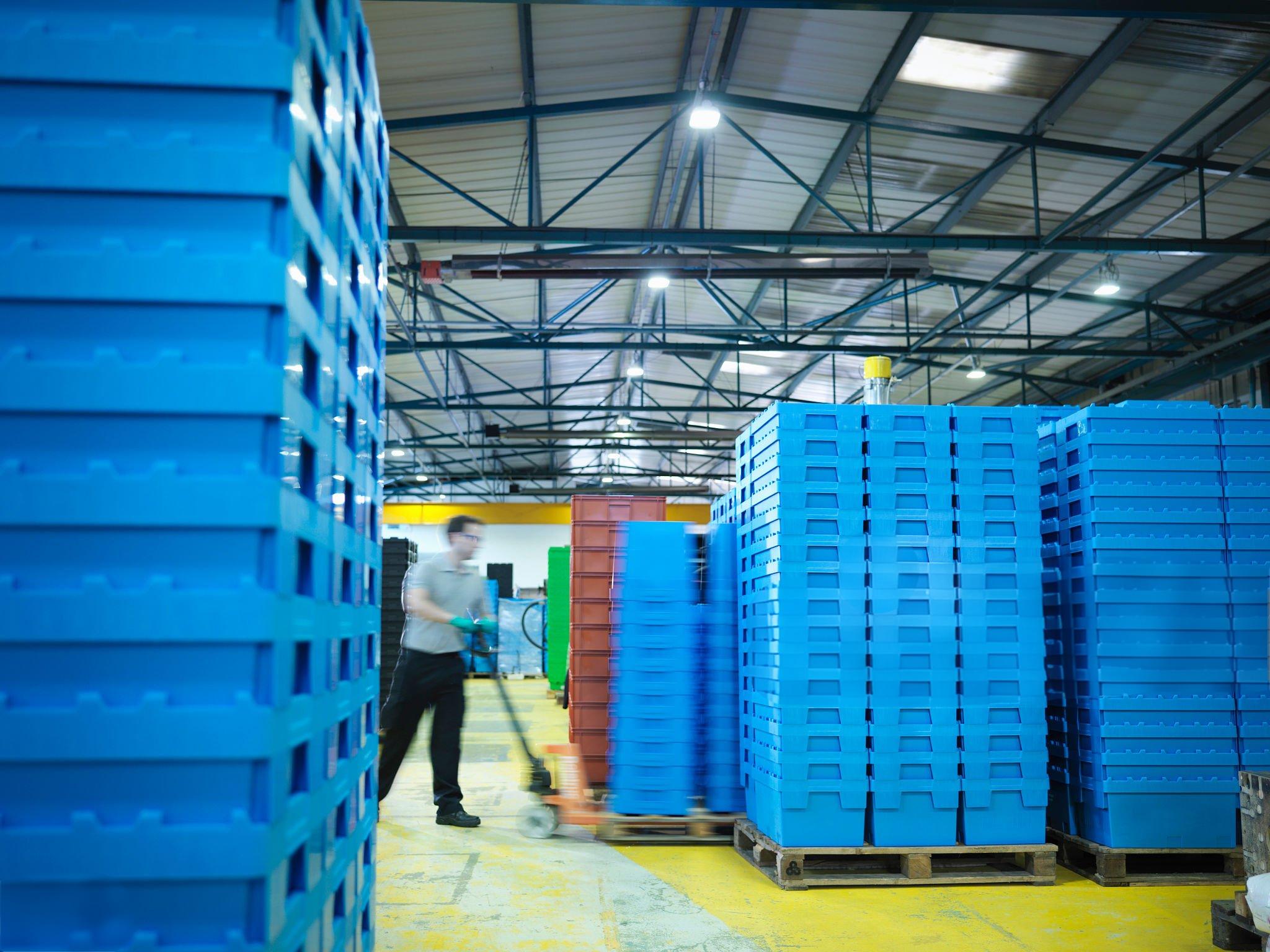
How Plastic Pallets Can Slash Your Operational Costs
Discover how switching to durable plastic pallets can significantly reduce your operational costs while improving efficiency in material handling. As businesses seek smarter logistics solutions, plastic pallets offer superior longevity, hygiene, and cost-effectiveness compared to traditional wood pallets. This guide explores 7 key ways plastic pallets optimize supply chain operations for warehouse managers, procurement specialists, and operations directors alike.
1. Long-Term Cost Savings Through Durability
Plastic pallets typically last 10-15 years with proper maintenance, compared to just 1-3 years for standard wooden pallets. Their high-density polyethylene (HDPE) or polypropylene (PP) construction resists splintering, cracking, and moisture damage that plague wood alternatives. This durability translates to fewer replacements – a major cost factor when calculating total pallet expenditure. Consider this: while the initial purchase price of plastic pallets may be higher, their lifespan often makes them 40-60% cheaper over a 10-year period when accounting for replacement costs and downtime.
Furthermore, plastic pallets maintain consistent dimensions throughout their lifecycle, unlike wood pallets that warp over time. This dimensional stability prevents jams in automated systems and reduces product damage – two hidden costs that frequently impact operational budgets. Food manufacturers particularly benefit from this feature, as damaged pallets can compromise hygiene standards and lead to costly recalls.
2. Hygiene Advantages That Reduce Compliance Costs
In industries with strict sanitation requirements like pharmaceuticals, food processing, and healthcare, plastic pallets offer distinct advantages. Their non-porous surfaces prevent bacterial growth and can be easily cleaned with industrial washers or chemical disinfectants. Many models meet FDA, USDA, and HACCP standards right out of the box, eliminating the need for expensive treatments required by wooden pallets.
The International Plant Protection Convention (IPPC) requires heat treatment or fumigation for wood pallets used in international shipping – processes that add $5-15 per pallet to operational costs. Plastic pallets are exempt from ISPM 15 regulations, providing immediate savings for global supply chains. For companies shipping between multiple countries, this exemption alone can justify the switch to plastic.
3. Operational Efficiency Gains Across the Supply Chain
Standardized plastic pallet designs streamline warehouse operations in measurable ways. Their uniform weight and dimensions allow for precise racking configurations and optimized storage space. Unlike wooden pallets that vary in weight by up to 20%, plastic pallets enable accurate load calculations for transportation – a critical factor in logistics cost control.
Automation compatibility represents another efficiency frontier. Plastic pallets work seamlessly with robotic systems, conveyor belts, and automated storage/retrieval systems (AS/RS) due to their consistent dimensions and smooth surfaces. This reduces jams and maintenance costs in automated facilities. For companies considering warehouse automation – a growing trend in logistics – plastic pallets future-proof material handling operations.
4. Safety Improvements That Lower Insurance Costs
Workplace injuries related to pallet handling cost businesses millions annually in workers' compensation claims and lost productivity. Plastic pallets address several common hazards: they eliminate protruding nails and splinters that cause injuries, feature rounded edges for safer handling, and often include anti-slip surfaces to prevent load shifts. Some insurance providers offer premium discounts for facilities using plastic pallets due to their superior safety profile.
Fire safety presents another cost consideration. While both materials burn, plastic pallets made from flame-retardant compounds meet NFPA and OSHA standards for fire resistance. This can reduce insurance premiums in high-risk environments like chemical storage facilities. Unlike wood, plastic pallets don't absorb flammable liquids – a critical factor in preventing fire spread.
5. Environmental Benefits With Financial Implications
Modern plastic pallets often contain 30-100% recycled material and are fully recyclable at end-of-life, appealing to sustainability-focused companies. Many manufacturers operate take-back programs that credit customers for returned pallets. This circular economy approach contrasts with wood pallets, which typically end up in landfills or require energy-intensive recycling processes.
Corporate sustainability initiatives frequently include pallet choices. Companies using plastic pallets can leverage this in ESG reporting and potentially qualify for green business certifications. Some jurisdictions offer tax incentives for sustainable packaging solutions, creating another financial advantage. When evaluating Small Wood Pallet Epal Wood Pallet Making Epal Manufacturer Wooden Pallet alternatives, these environmental factors increasingly influence purchasing decisions.
6. Customization Options That Reduce Special Handling Costs
Injection-molded plastic pallets can be customized to exact specifications without the structural compromises of modified wood pallets. Common adaptations include: RFID embedding for smart tracking, specialized load-bearing configurations, and unique footprints for niche applications. These custom solutions often eliminate the need for secondary packaging or specialized handling equipment.
The pharmaceutical industry provides a compelling case study. Temperature-sensitive medications often require pallets with built-in thermal barriers – a feature easily incorporated into plastic pallet designs. For companies shipping high-value or sensitive products, these custom features prevent damage and reduce insurance claims.
7. Total Cost of Ownership Analysis
When evaluating pallet options, smart procurement teams analyze total cost of ownership (TCO) rather than just purchase price. A comprehensive TCO calculation should include: initial purchase cost, expected lifespan, replacement frequency, repair costs, compliance expenses, operational efficiencies, and disposal/recycling costs. For most medium-to-high volume users, plastic pallets deliver superior TCO within 2-3 years.
Consider contacting our team for a customized TCO analysis specific to your operations. With expertise across industries, we can help quantify potential savings from switching to plastic pallets. Our consultants frequently identify overlooked cost factors like reduced product damage (typically 0.5-2% of shipment value) and lower pallet management overhead.
Why Choose Our Plastic Pallets?
As an industry leader with 20+ years of experience, we manufacture high-performance plastic pallets that meet the toughest operational demands. Our products undergo rigorous testing to exceed ISO 18613 and ASTM D1185 standards for load capacity and durability. Whether you need standard GMA-style pallets or custom solutions, our engineering team collaborates closely with clients to optimize their material handling systems.
For operations still utilizing Small Wood Pallet Epal Wood Pallet Making Epal Manufacturer Wooden Pallet solutions, we offer phased transition programs that minimize disruption. Contact our logistics specialists today for a free cost-benefit analysis tailored to your specific operational requirements and budget parameters.
Related Posts
- How to Ensure Supply Chain Efficiency with Custom Single Sided Pallets
- Custom European Style Plastic Pallets for Supermarket Shelves
- How to Extend the Lifespan of Your Large Pallets: Maintenance Tips
- How to Prevent Slippage & Load Shift on 1200x1200mm Plastic Pallets in Automated Racking?
- The Difference Between HDPE, PP & Recycled Plastic in 1200x1200mm Industrial Pallets
- Heavy-Duty Large Capacity Durable Plastic Turnover Box Wholesale
Products
Message
Leave a message
Have any questions or requests? Please leave a message and we will get back to you as soon as possible.

